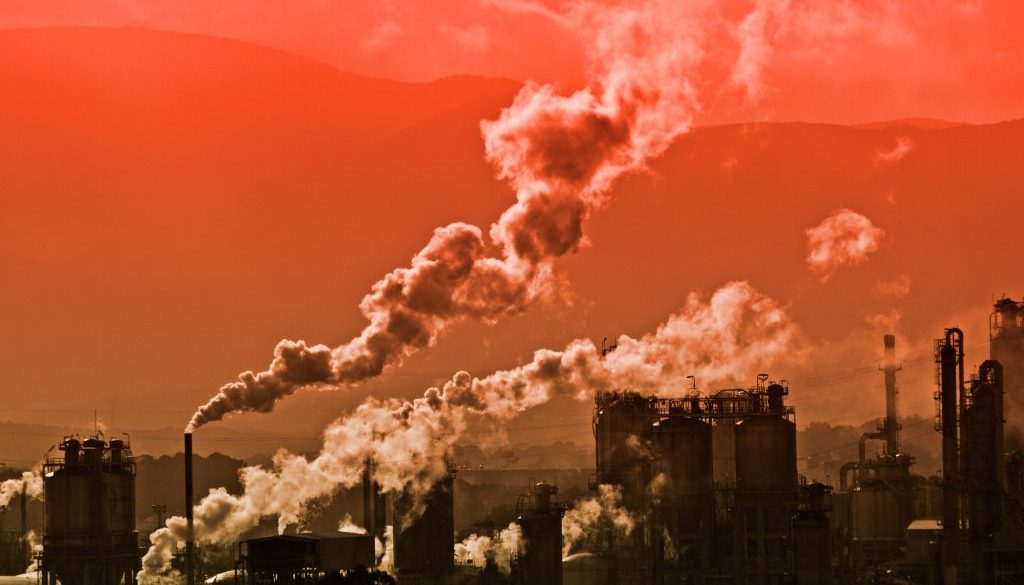If Confirmed to the Supreme Court, Brett Kavanaugh Would Threaten the Environment
By Malina Julia, People for the American Way
In addition to his extreme records on abortion, reproductive rights and the Affordable Care Act, Trump Supreme Court nominee Brett Kavanaugh’s judicial and legal history indicates a lengthy anti-environmental record that would severely endanger Americans’ public health and right to clean air and water. During his tenure as a judge on the U.S. Court of Appeals for the D.C. Circuit, Kavanaugh has positioned himself in opposition to fundamental climate, clean air, and clean water safeguards— linchpins of maintaining public safety, abating climate change, and keeping our country livable. Kavanaugh’s appointment would not only be a tremendous win for President Trump’s pro-corporate agenda, it would also place the Clean Air Act and the Clean Water Act in jeopardy and dilute the authority of the EPA and other federal agencies to implement and enforce those laws.
While Justice Anthony Kennedy did not always stand up for the environment, he issued a critical concurring opinion in Rapanos v U.S. (2006) that protected the scope of enforcement for the Clean Water Act. We know that we cannot trust Kavanaugh to do the same in cases that could make or break the efficacy of the Clean Water and Clean Air Act. During his year and a half in office, Trump and his administration have issued no shortage of egregious environmental decisions (to name a few, his withdrawal of the US from the Paris Agreement, his war on the EPA, his proposal to gut funding for national parks, and his approval of the Keystone XL and other oil pipelines), but if Kavanaugh is confirmed, Trump will solidify his legacy as one of our most anti-environment presidents to date.
Kavanaugh’s environmental decisions and dissents reveal his prioritization of corporate fealty over environmental protection. In fact, every dissent he issued in environmental cases was in favor of industry over environmental protection.
- For one, in 2008, in American Bird Conservancy, Inc. v. FCC, Kavanaugh dissented from a decision that required the FCC to more completely review the possible harm to migratory birds of proposed industry cell towers in the Gulf Coast area.
- In 2012, Kavanaugh sided with corporations that sought to challenge a new EPA rule reducing air pollution in his two dissents in Grocery Manufacturers Association v. EPA. That same year, in Coalition for Responsible Regulation, Inc. v. EPA, Kavanaugh disagreed with a decision, which included his conservative Republican-appointed colleague David Sentelle, to uphold an EPA regulation on greenhouse gas emissions by autos and trucks. The industry groups then tried to get the full D.C. Circuit to rehear the case. Although Kavanaugh again dissented, every other judge who considered the case, including four appointed by Republicans and three by Democrats, decided not to rehear the issue.
- A year later, he argued similarly in 2013’s Texas v. EPA to invalidate regulatory rules on plants’ and factories’ greenhouse gas emissions.
- In 2015’s Mexichem Specialty Resins, Inc. v. EPA, Kavanaugh would have at least delayed an EPA rule limiting hazardous emissions from the manufacture of PVC plastics, a ruling which would have allowed the release of “more than a dozen known or suspected carcinogens and other hazardous” materials. Kavanaugh also wrote a decision agreeing with challenges to an EPA rule in Eme Homer City Generation, L.P. v EPA in 2015 called the Good Neighbor Rule, a regulation which controls cross-state air pollution. According to the EPA, the regulation would have lowered sulfur dioxide emissions by 73 percent and nitrogen oxide emissions by 54 percent, and prevented 34,000 premature deaths. This was a major blow to communities suffering from upwind polluters.
- In the 2016 court case Mingo Logan Coal Co v. EPA, Kavanaugh dissented from a majority conservative opinion, attempting to undermine EPA’s partial revocation of Mingo Coal’s permit to dump waste into streams. The company’s waste dumping habits were found to have “unacceptable adverse effects” to the environment. Here, he again tried to limit the power of the EPA under the guise of a cost-benefit analysis. Had Kavanaugh been successful, Mingo Coal would have continued to pollute waterways that support local Appalachian communities.
- Last year, in the 2017 court case Mexichem Flour Inc v. EPA, Kavanaugh ruled that the EPA cannot require companies to replace potent heat-trapping chemicals, hydrofluorocarbons (HFCs), with other substances. Kavanaugh favored the corporate interests of Mexichem Inc. over sincere environmental and safety interests and gutted the regulatory of capacity of the EPA.
Kavanaugh’s legal history with environmental issues consistently demonstrates his regard for corporations and disregard for the public interest. We cannot permit a narrow-minded elitist to roll back generations’ worth of progress in our country.
Beyond the damage to the environment that Kavanaugh has already done, the ramifications of his disdain for the ACA, civil rights, and women’s right to choose will also be long-lasting. The clock is ticking for America to start addressing the roots of climate change and environmental degradation, and soon it will be too late. If Brett Kavanaugh is confirmed to this lifetime seat on the Supreme Court, this country will undoubtedly face tremendous setbacks in the fight for environmental justice.
Our world cannot bear the damage that Kavanaugh will reap on the environment—or our democracy—should he be confirmed to the Supreme Court. It is both our civic duty and moral imperative to tell our members of Congress that we reject the nomination of someone who so clearly will not properly apply the laws protecting the environment from corporate interests.

